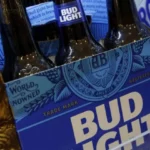By Tom Ozimek
A tribal chief with links to the Native American nation that originally inhabited the land in Vermont where Ben & Jerry’s is headquartered said he’s interested in getting the land back after the ice cream company called for the return of “stolen” lands.
Don Stevens, chief of the Nulhegan Band of The Coosuk Abenaki Nation, which is descended from the nation that once controlled parts of modern-day Vermont, told Newsweek in a recent interview that the nation has always been “interested in reclaiming the stewardship of our lands.”
Ben & Jerry’s has not yet approached the nation, per the report, even though the ice cream company said in a statement ahead of Independence Day that the United States was founded on land stolen from Indigenous peoples and that called for a commitment to giving it back.
While the company said “we need to start with Mount Rushmore” and the Black Hills areas and return them to the Lakota nation in South Dakota, the statement suggested a broader thrust of restitution.
“Ah, the Fourth of July. Who doesn’t love a good parade, some tasty barbecue, and a stirring fireworks display? The only problem with all that, though, is that it can distract from an essential truth about this nation’s birth: The US was founded on stolen Indigenous land,” the ice cream company said in the statement.
“This year, let’s commit to returning it,” Ben & Jerry’s continued, adding that the first place to start is Mount Rushmore, followed by the Black Hills.
However, the chief told Newsweek that, despite the ice cream company’s virtue signaling, the tribe “has not been approached in regards to any land back opportunities from Ben & Jerry’s.”
He added that if the tribe is approached, “many conversations and discussions will need to take place to determine the best path forward for all involved.”
The Epoch Times has reached out to Ben & Jerry’s for comment.
Boycott Calls
Ben & Jerry’s has received significant backlash on social media after its “stolen land” statement and associated post on social media ahead of the Fourth of July weekend, with some calling for a Bud Light-style boycott.
“Make @benndjerrys Bud Light again,” country singer-songwriter John Rich wrote in response to Ben & Jerry’s post on social media, referring to the monthslong boycott targeting Bud Light over its marketing partnership with transgender influencer Dylan Mulvaney, which struck a raw nerve with conservatives.
Amid the boycott calls, Bud Light has seen its sales plummet, with some of the brand’s competitors the apparent beneficiaries.
“Long overdue for the Bud Light treatment. You hate the country, fine. We won’t buy your product. All good,” another user wrote in response. “When is Ben & Jerry’s giving up their land?” Jenna Ellis, a former attorney to Donald Trump, wrote on Twitter.
The controversial Twitter posts also drew an opinion article from the New York Post’s editorial board on Wednesday, with the paper calling on the brand to “give back the land your US factories and stores sit on and the millions upon millions you’ve made from exploiting the indigenous.”
“The brand backed bad-joke Occupy Wall Street, for crying out loud; it aligns with the anti-Israel BDS movement. Co-founder Ben Cohen funds groups opposed to US military aid to Ukraine,” the editorial wrote before calling for a boycott of the Unilever-owned ice cream company.
“Remember, America, you don’t have to accept woke preening from corporate elites. Speak up—with your wallets,” it said.
Ben & Jerry’s is no stranger to boycott calls as, over the years, its founders have championed a variety of left-leaning causes and have pushed for a reckoning over alleged “structural racism” in American society.
“I understand that acknowledging the structural racism that is deeply woven into the fabric of our society is difficult,” Matthew McCarthy, CEO of Ben & Jerry’s wrote in an op-ed in 2021 entitled: “To move forward, America must be honest about our racist past—and fix it”
Jack Phillips contributed to this report.






